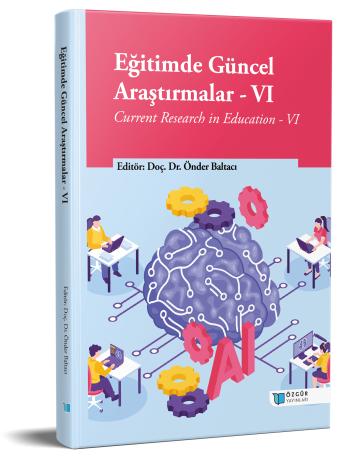
Examining of Seventh Grade Students' Self-Efficacies towards Mathematical Reasoning According to Some Variables
Chapter from the book:
Baltacı,
Ö.
(ed.)
2023.
Current Research in Education - VI.
Synopsis
The aim of this study was to measure the self-efficacy perceptions of seventh grade students towards mathematical reasoning, considering gender and mathematics achievement. The participants of the study were the seventh-grade students studying in five different public schools in the Eastern Anatolia Region in the 2021-2022 academic year. The sample of the study consisted of a total of 378 seventh grade students, 188 girls and 190 boys. Students were divided into four groups according to their mathematics achievement. Accordingly, 83 of the students had mathematics success between 0-54 points, 95 had 55-69 points, 99 had 70-84 points, and 101 had mathematics success between 85-100 points. In this research, the "Mathematical Reasoning Self-Efficacy Scale" developed by Mumcu (2019) was used. The scale consists of a total of 21 items, 11 of which are positive and 10 of which are negative. Descriptive statistical methods and inferential statistics methods were used when analyzing the data. The mean scores of the items in the scale were calculated. The lowest score to be obtained from the scale is 21 and the highest score is 105. After the total score was obtained according to the answers given by the students to the scale, an evaluation was made according to the scores obtained and the average of the scores obtained from the scale was calculated. In addition, "Two Way Factorial ANOVA " was used to examine whether seventh grade students' self-efficacy perceptions differ based on gender and mathematics achievement variables. According to the data obtained, it was determined that the mathematical reasoning self-efficacy levels of seventh grade students were above the medium level. In addition, it was revealed that students were most confident when doing Generalization/Abstraction/Modelling, but less confident when doing Reasoning/Relationships. Furthermore, while there was no significant difference between genders in students' self-efficacies of mathematical reasoning, significant differences were found according to mathematics achievement. In summary, it was determined that students with high mathematics achievement also had high mathematical reasoning self-efficacy perception.

